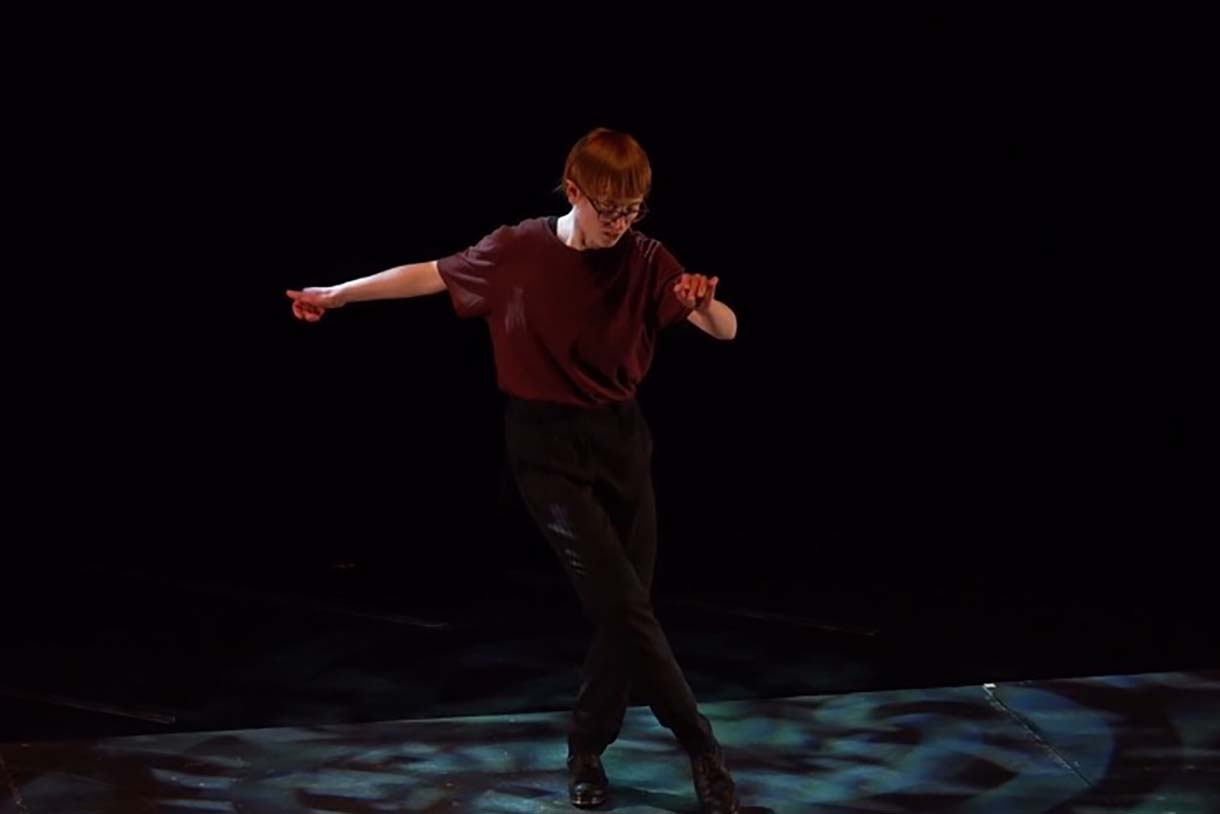Dancer Vi McMahon on Art, Activism, and Thriving (Not Surviving)

Columbia Dance student Vi McMahon ‘25 may have been dancing since they could walk, but it was tap artist Dianne Walker’s performance with Dormeshia Sumbry Edwards and Jason Samuels Smith at the Twin Cities Tap Festival that showed McMahon a new perspective. “[That performance] made me completely reevaluate tap as not just a performance, but a means of communication for these three improvisers,” McMahon says.
When it was time to consider college, McMahon’s high school college and career advisor suggested Columbia: “I wanted to be in or near a large city, and for there to be a good dance program, and [for there to be] a focus on diversity and activism within the college.” Columbia fit the bill: “I could tell right away,” McMahon says, “that Columbia would surround me with the kind of people and values I wanted to be around.” As a bonus: Columbia’s academic environment, while offering productive criticism, was supportive rather than cut-throat, and community-focused rather than judgement-oriented. “It’s completely different from other, often harshly competitive, areas of the dance world,” McMahon says. “The Columbia Dance department is not a place to fear judgment from your peers.”
One way that McMahon is able to live their values at Columbia is through acting as the student representative for the DEI Executive Committee. From McMahon’s perspective, there are a plethora of opportunities for working to create actively anti-racist spaces in campus environments. “Something I really emphasize is the idea of space being malleable,” McMahon says. “Malleable spaces are open to change, constantly in conversation, and provide support to people from all backgrounds to have a say in their own learning and highlight their own personal and cultural values.” By advocating for adjustments to physical space, ideating ways to subvert traditional (and limiting) classroom power dynamics, and creatively address opportunities to meet students’ individual learning goals, McMahon hopes that the DEI Executive Committee’s work will provide progressive and transformative experiences for current and future Columbia students.
Professionally, McMahon is the first to acknowledge that their perspective and goals have changed over time. In high school, McMahon wanted to “dance for the sake of dancing.” Now, however, they say, “I am more interest in being an artist and activist, with dance as my medium.” That shift has also encouraged McMahon to reevaluate how best to thrive in a rapidly evolving world. A piece of the solution has been focusing on the present and staying focused on learning and growing. “Before coming to college, I struggled with severe anxiety,” McMahon says. “Since coming to Chicago, I’ve focused on learning and growing. I’ve been able to progress so much more as a person since I stopped trying to control the future.”
Still, undoubtedly, the future looks bright. “I believe that I’ll walk away from Columbia with the skills I need (as a dancer, as a writer, as an activist) to take on what’s ahead of me, but I don’t anticipate it being one steady thing for the rest of my life,” McMahon says. “This world is constantly changing, and the opportunities in it will continue to change too. I’ll watch for them and take them as they come.”